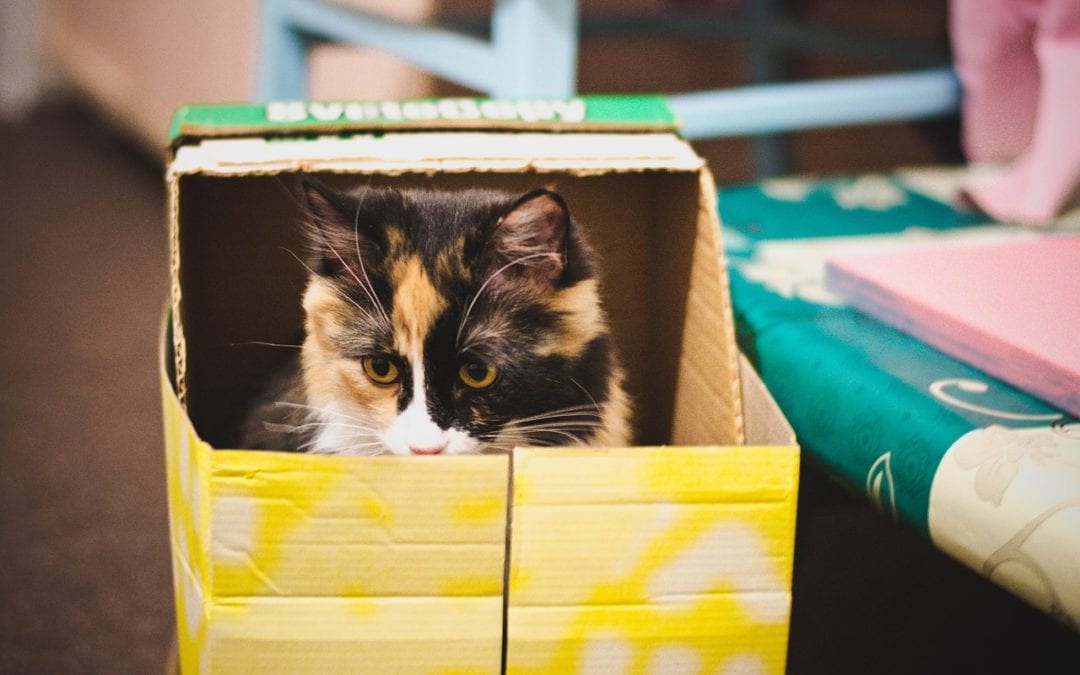While we don’t often think about our pets being stressed, it is actually a big concern. While your cat may not be worried about the big project due at work next week, he or she has concerns in kitty world.
Do you know if your cat is stressed? And how does one go about calming a stressed cat? Read on to learn more about how Union Lake Veterinary Hospital recommends keeping your cat cool as a cucumber.
It’s Stressful Being a Cat?
Your cat enjoys a leisurely day of napping in bed, gazing out the window, and enjoying the premium pet food you supply on demand. What on Earth could possibly be stressful about that?
The truth is that by owning cats, we disrupt their natural behaviors and instincts. We have taken an animal who is used to being on his or her own and forced them indoors with us to live in a pack. Many things about household life can be stress triggers for cats, including:
Changes in day to day routineNew additions to the house (pets, children, significant others, even a new sofa)Disturbing noises or smellsMovesVisits to the veterinarianConflict with other pets in the homeNot enough stimulation or exercise
Cats who are stressed may exhibit a wide variety of issues. These can include behavioral changes, litter box issues, hair pulling or over-grooming, the development of feline lower urinary tract disease. In addition, any cat owner knows that putting a cat into a carrier and driving them to a veterinary visit has its own list of stress behaviors. A stressed cat is not a happy cat.
Tips for Calming a Stressed Cat
If you think that your cat may be stressed, it is important to address the issue right away. Calming a stressed cat isn’t always easy, but it is important to the happiness and health of both you and your feline friend. Be sure to:
Remove the stimulus if possible – If there is an identifiable cause for your cat’s woes that can be fixed, by all means do so. While it may be easy enough to tell your sister she can’t bring her dog over for a visit or you add an additional litter box in a multi-cat home, there are many issues that can’t be removed. You probably aren’t going to give away the dog or avoid a move because your cat is upset.
Enrich your pet’s environment – Take time to be sure that your pet is getting exercise and social interaction on a daily basis. Be sure that he or she has access to vertical space such as cat trees or shelves and can view the outdoors. Cats also need an appropriate scratching area. Provide toys that are rotated regularly. Check out The Ohio State’s Indoor Pet Initiative for more ideas.
Provide routine – Cats are creatures of habit. Do your best to give your cat a predictable day to day routine.
Fear-Free vet visits – ULVH is working to be a stress-free, fear-free practice because we want pets to like to come and see us. You can help your kitty get used to his or her carrier so that the carrier isn’t a stressor. We recommend a top-loading cat carrier to make it easier to lift your cat in and out. If you have a front-loading carrier, prop it against a piece of furniture so that the open door is pointing upward. Wrap your cat burrito style in a towel or blanket and lower them head first into the carrier. Make sure the carrier is large enough for your cat to stand up or turn around.
Think pheromones – Kitty pheromones such as Feliway are designed to give your cat a sense of security and well-being. These products come in collars, plug-in diffusers, and sprays and can be very helpful for some cats.
Ask about supplements – Many products exist that may be helpful for pets under stressful situations. Things like essential oils, herbal and traditional Chinese Veterinary Medicine, Rescue Remedy, and prescription diets containing calming ingredients can be used with discretion. Always clear these types of supplements with us first to be sure that there are no contraindications.
Some pets may require actual medications to relieve anxiety. While the above suggestions are often helpful, please schedule an appointment today to discuss your options if your pet seems to need more.
Calming a stressed cat can be difficult, but with a little effort it is possible and very worth it. A happy cat is a healthy cat, and we can all agree that is an important achievement!

